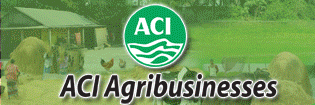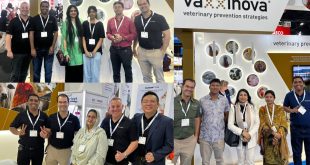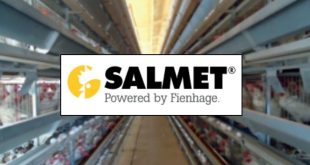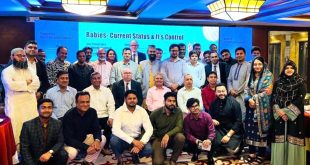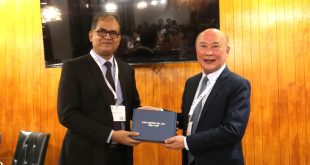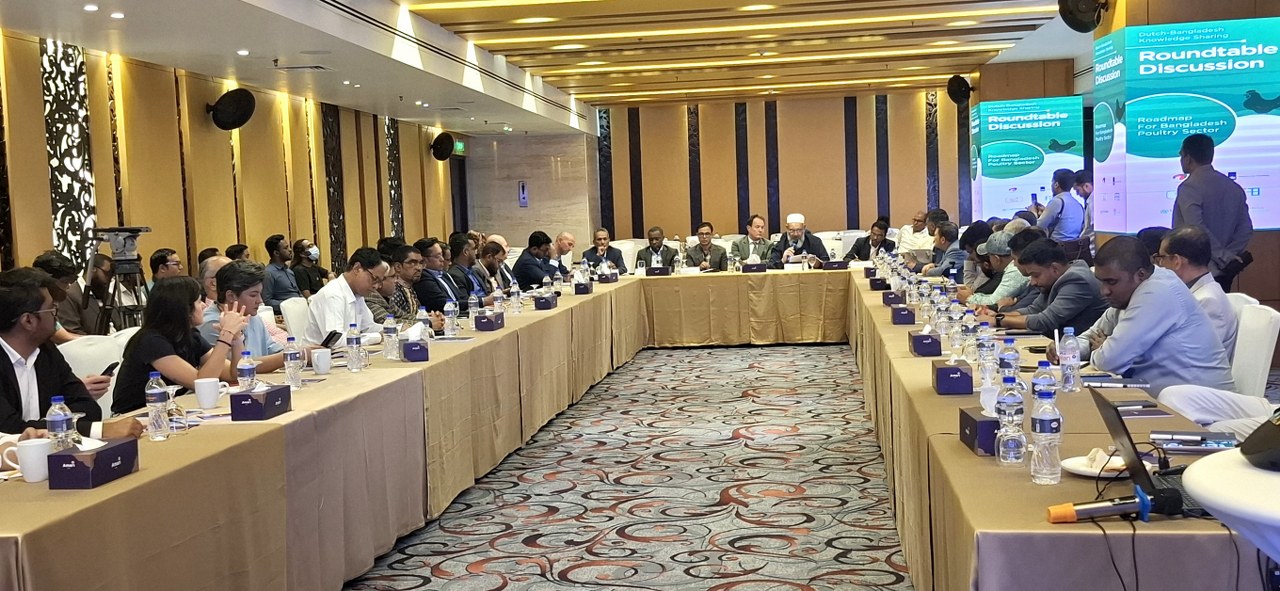 Special Correspondent: Poultry is a growing sector in Bangladesh that is providing quality and affordable animal protein. To support this very important sector Dutch government is providing possible technical support through PoultryTech Bangladesh project, a partnership aimed at facilitating increased trade and investment between the Netherlands and Bangladesh.
Special Correspondent: Poultry is a growing sector in Bangladesh that is providing quality and affordable animal protein. To support this very important sector Dutch government is providing possible technical support through PoultryTech Bangladesh project, a partnership aimed at facilitating increased trade and investment between the Netherlands and Bangladesh.
Aiming to engage in strategic discussions on the future growth of Bangladesh’s poultry sector and the Netherlands’ role in fostering a sustainable growth ecosystem, a roundtable was jointly organized on 18 November in Dhaka by Larive International, LightCastle Partners, the Bangladesh Poultry Industries Central Council (BPICC) and Feed Industries Association Bangladesh (FIAB), with support from Dutch government.
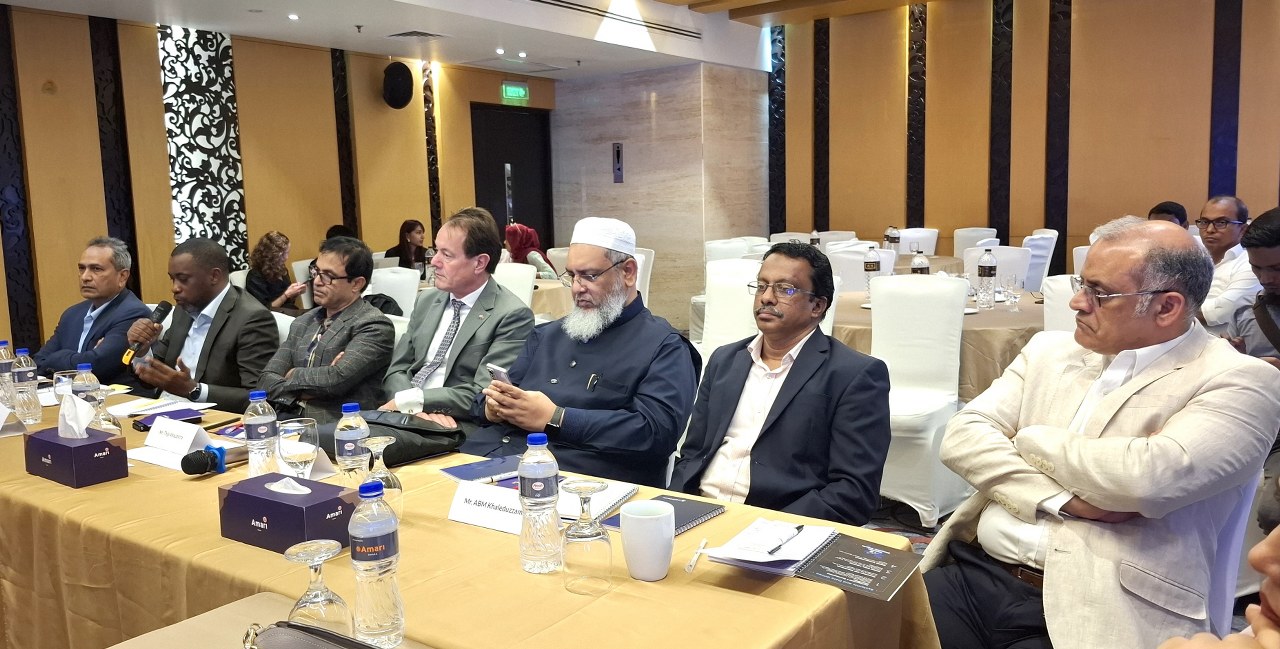 Mr. Thjis Woudstra, Charge de Affairs, Embassy of the Kingdom of the Netherlands, said that Netherlands has been a true development partner of Bangladesh and will continue the relation in future. He said, the poultry industry of Bangladesh has a huge potentiality as the per capita protein intake is still low. The Dutch government wants to see a vibrant poultry industry in Bangladesh and be a proud partner of its positive growth.
Mr. Thjis Woudstra, Charge de Affairs, Embassy of the Kingdom of the Netherlands, said that Netherlands has been a true development partner of Bangladesh and will continue the relation in future. He said, the poultry industry of Bangladesh has a huge potentiality as the per capita protein intake is still low. The Dutch government wants to see a vibrant poultry industry in Bangladesh and be a proud partner of its positive growth.
Mr. Amadou Ba, the Agricultural Economist of The World Bank said, they are helping Bangladesh poultry industry to maintain hygiene and quality productions aimed at exporting to overseas. The IFC of the World Bank group is also working with the Bangladesh’s private sector for enhancing their quality production and ensuring supply of growing protein demand.
Dr. SM Zobaidul Kabir, Joint secretary, Ministry of Fisheries and Livestock (MOFL) said, the industry has been facing lots of challenges like price hike of raw materials, price volatility of DOC, egg & chicken meat, over & under production, complexities at the port, Tax related issues, packaging issues, BSTI’s CM certificate, commercial rate of electricity and so. The ministry has been working with the stakeholders to address those.
Mr. Shamsul Arefin Khaled, president, Feed Industries Association Bangladesh (FIAB) as well as the Bangladesh Poultry Industries Central Council (BPICC) said that building consensus and ensuring stakeholder compliance is vital for ensuring available protein supply to the market. Large corporate producers across the value chain, in particular, must adhere to the government’s decisions, policies and strategic directives. “False accusations, such as allegations of producer syndication, foster distrust. Promoting transparency and conducting public awareness campaigns are crucial to addressing and dispelling these misconceptions,” added Mr. Khaled. He urged the government to intervene in the market based on robust and accurate data to be effective and proper oversight on the intermediaries in the supply chain.
Mr. Moshiur Rahman, president, the World’s Poultry Science Association-Bangladesh Branch (WPSA-BB) and Managing Director, Paragon Poultry said that the country’s poultry industry is working to become self-sustainable with zero carbon emission. “We are not only working to supply in the local market but also trying to become a technically sophisticated industry in a bid to expand its market abroad. Since Bangladesh’s key protein supplying industry is the poultry, so the government and other stakeholders will have to work together to expand the industry as a sustainable one.
Mr. Moshiur said, “we are trying a green industry by converting poultry waste into wealth. Many of the big farms are now producing bio-fertilizer, bio-gas and electricity. We are setting-up solar panel on poultry shed, using electricity produced from solar energy and saving costs. Not only that Paragon is also earning carbon credits for reducing carbon emission.
The session addressed essential topics including the current state of the industry, key opportunities, and pressing challenges, with an emphasis on policy reforms and strategic approaches for sustainable sectoral growth. Aiming to unify stakeholder efforts, the session explored solutions for stabilizing supply-demand dynamics, advancing food and feed safety standards, strengthening biosecurity measures, and identifying investment opportunities to support modernization and climate resilience in the poultry sector. The roundtable presented an invaluable opportunity for the Netherlands and Bangladesh to collaborate on strategies to shape the future of Bangladesh’s poultry sector.
 Agrinews24 কৃষির সাথে, কৃষকের পাশে
Agrinews24 কৃষির সাথে, কৃষকের পাশে
